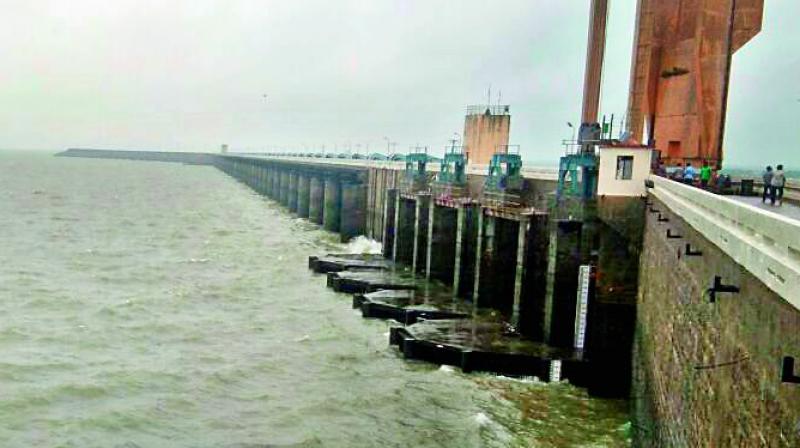Centre\'s green panel nod to Telangana\'s Rs 2,121 cr dam project on Godavari
The green panel has recommended the EC to the proposed project with some conditions, the sources added.

New Delhi: The government's green panel has given the environment clearance (EC) for constructing a dam across Godavari river in Jayashankar Bhupalapally district of Telangana at a cost of Rs 2,121 crore, according to sources.
The proposed P V Narasimha Rao Kanthanapally Sujala Sravanthi Project (PVNRKSSP) involves construction of 23 metre high and 1,132 metre long barrage (dam) across Godavari river and will facilitate irrigation during rabi season benefitting three districts - Jayashankar Bhupalapally, Nalgonda and Khammam.
The central government-constituted green panel called Expert Appraisal Committee (EAC) assesses the projects and makes recommendations, based on which the Union Environment Ministry grants the final EC.
According to the sources, the Telangana government had in December 2018 submitted an application seeking EC for the PVNRKSSP. However, the EAC had deferred its decision for want of additional information.
The state government submitted additional details and the EAC examined the proposal again last month and recommended giving environment clearance, they said. The green panel has recommended the EC to the proposed project with some conditions, the sources added.
The Telangana government had approved the project with an estimated cost of Rs 2,121 crore way back in February 2017. The project requires 674.18 hectare land, out of which 94 hectare is private land and 580.18 hectare is river bed area.
As per the Godavari Water Disputes Tribunal order (GWDT), the total allocation of water in the Godavari river to the Telangana and Andhra Pradesh is 1,480 TMC.
The net water availability at the proposed barrage site has been worked out to be 407.4 TMC, of which 180 TMC is allocated for Kaleshwaram Irrigation project (peddha), 4.5 TMC for Kaleshwaram LIS (tank filling) and 100 TMC for the proposed PVNRKSSP.
The sources said that the purpose of the proposed barrage is to raise the water level in the river to feed the existing irrigation scheme and canals for irrigating the ayacut, which are not getting sufficient water, and also to meet the drinking water needs of the region.

